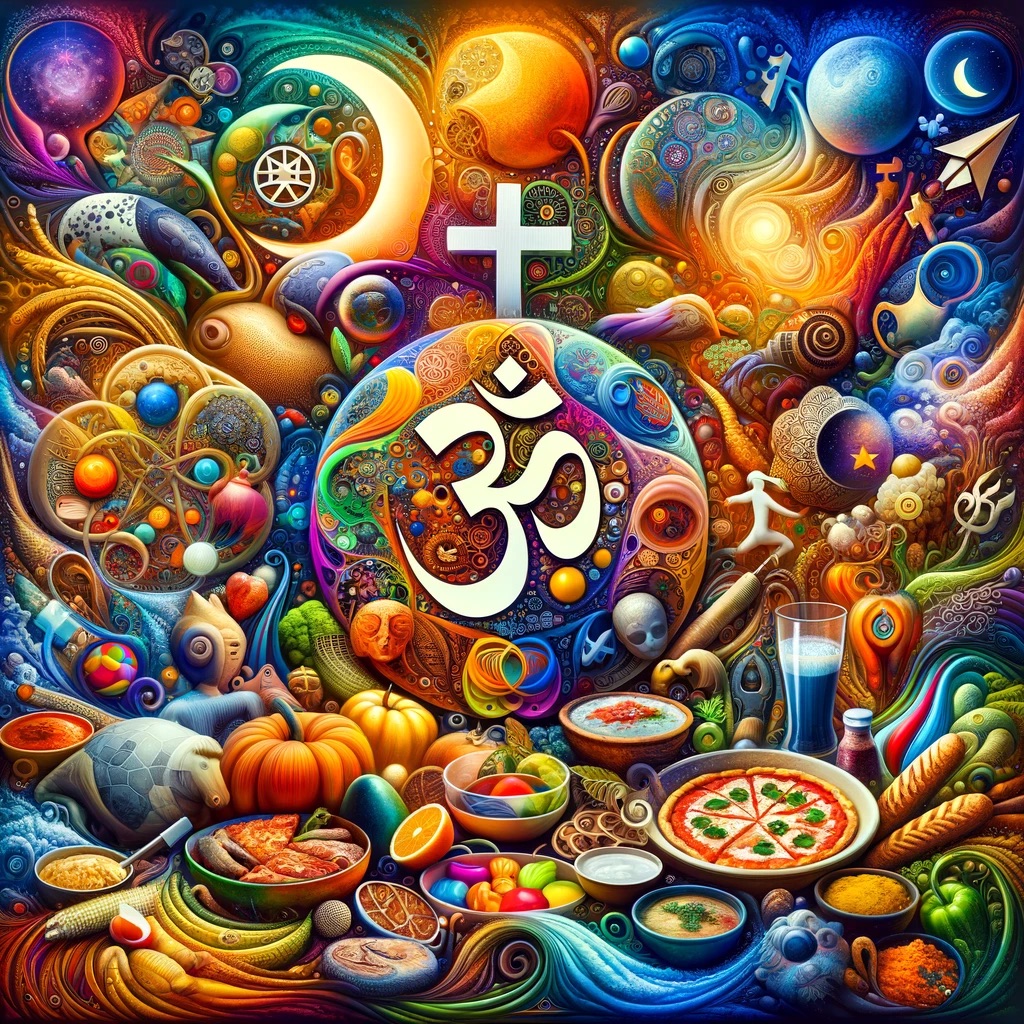
In the vast expanse of human knowledge and imagination, the concept of the Jaglablorada stands as a testament to the limits of our understanding. 🤔 An animal unheard of, unseen, and unspoken of until now, it eludes our mental grasp not because of its complexity, but simply because it has never entered our collective consciousness. This intriguing thought experiment underscores a fundamental truth about human perception: to conceptualize, we must first have a point of reference, a cornerstone laid down by our experiences and teachings 🧠.
Culinary Preferences: A Window to Our Worldview
Consider the diverse palette of global cuisine, a realm where familiarity and novelty dance in the delicate balance of taste and tradition. To a European presented with a platter of 18 types of curries on a banana leaf 🍛, the reaction might be one of hesitation, not from a lack of culinary curiosity, but from the absence of a mental bookmark that classifies this feast as desirable. Contrast this with the universal appeal of pizza 🍕, burgers 🍔, pasta 🍝, or roast duck with apples 🍎—foods that light up the eyes and wet the tongue of many, thanks to their prominent place in the culinary lexicon.
This divergence in taste extends beyond the dinner table, touching upon deeper, more ingrained preferences and aversions. From a Muslim’s abstention from pork 🚫🐖 to a vegetarian’s avoidance of all meat 🚫🥩, and the adventurous palate that delights in crab 🦀, snake 🐍, or even dog 🐶, our dietary choices are a mirror to our mindset, reflecting the values and beliefs imprinted upon us.
Beyond Taste: The Essence of Belief and Perception
The principle that governs our gastronomic likes and dislikes also shapes our beliefs, emotions, and affiliations. The comfort one finds in the teachings of Jesus, which may not resonate with another who feels a closer connection to Allah, illustrates the deeply personal nature of faith and conviction 🙏✨. These spiritual preferences, much like our culinary ones, are nurtured by our experiences and the knowledge we’ve been exposed to.
Acknowledging the subjectivity of our beliefs and perceptions is the first step toward fostering a culture of mutual respect and open dialogue 🌍❤️. Our convictions, deeply personal and etched into our being by our upbringing, shape how we view the world and interact with it.
Embracing Diversity: The Path to Mutual Respect
The realization that our truths are not universal, but rather a mosaic of individual experiences and teachings, invites us to approach the beliefs of others with curiosity and respect. Arguing over the superiority of our convictions serves no purpose other than to widen the divide. Instead, we should strive to create spaces where mutual respect flourishes and ideas are exchanged freely 🤝🌈.
In a world rich with diversity, the ability to embrace and appreciate different perspectives is more than a virtue—it’s a necessity. By understanding and respecting the myriad ways people perceive and navigate their existence, we pave the way for a more inclusive, empathetic, and connected world.
Let us, therefore, approach the tapestry of human experience with open hearts and minds, ready to learn from each other and grow together. In doing so, we not only enrich our own lives but also contribute to the collective wisdom of humanity.
Your’s lovingly The Real Magic Of Life
❤️💚🧡💙💜
You must be logged in to post a comment.